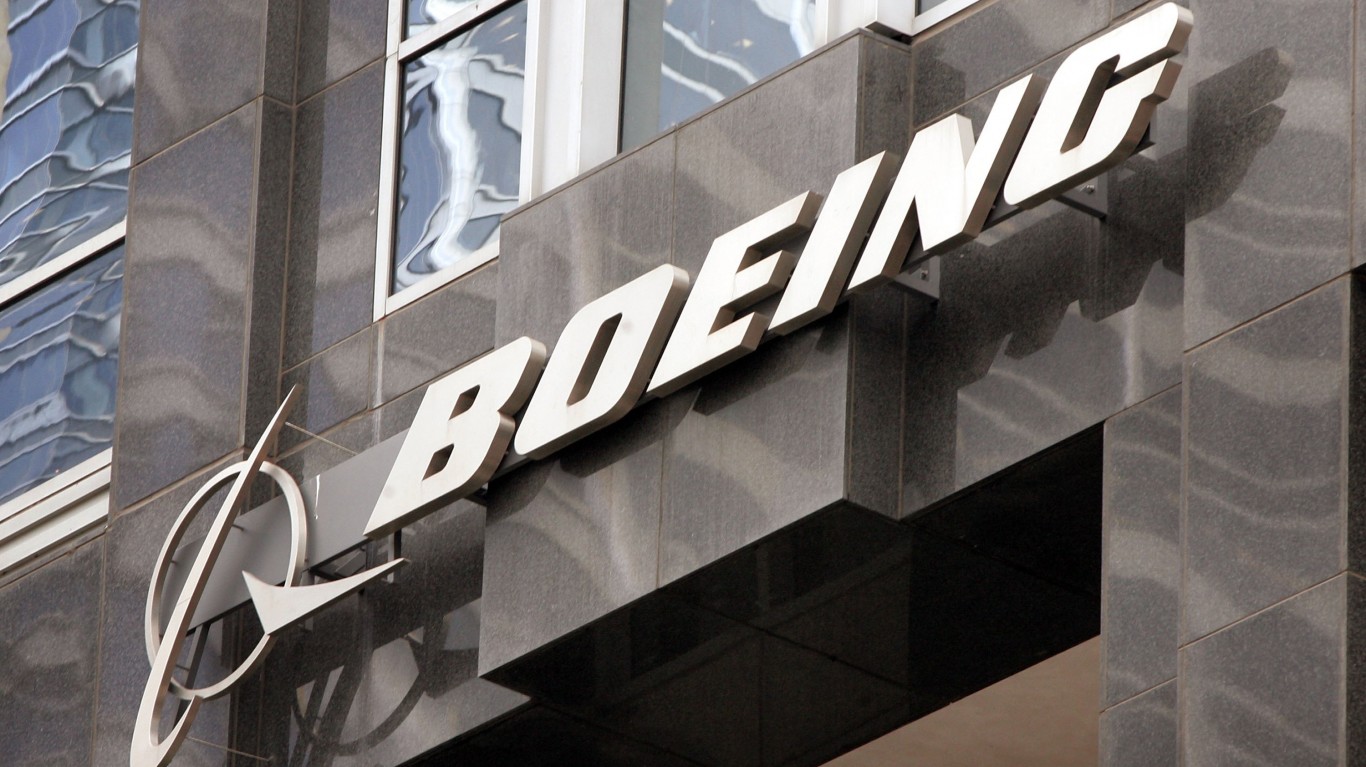Military
Why Boeing's Misses Aren't Sending Investors to the Exits

Published:
Last Updated:

When Boeing Co. (NYSE: BA) reported first-quarter 2019 results before markets opened Wednesday morning, the aerospace company posted adjusted diluted earnings per share (EPS) of $3.16 on revenues of $22.92 billion. In the same period a year ago, the company reported EPS of $3.64 on revenues of $23.38 billion. First-quarter results also compare to consensus estimates for EPS of $3.33 and $23.51 billion in revenues.
The number that matters most to Boeing — and to its shareholders — is operating cash flow, and first-quarter cash flow totaled $2.79 billion. That is down year over year by 11% from $3.14 billion and down sequentially from $2.95 billion in the fourth quarter of 2018. Operating cash flow totaled $15.32 billion in 2018, up from $13.34 billion in 2017.
Boeing’s inability to deliver completed 737 MAX aircraft hobbled the company’s cash flow in the first quarter. The company said it paid $1.2 billion in dividends in the quarter and repurchased 6.1 million shares at a cost of $2.3 billion. Both payments occurred before the mid-March grounding of the 737 MAX following a second MAX crash in Ethiopia that killed 157 people. Last October’s Indonesian crash killed 189 people, and the cause of both crashes appears to be the same.
Boeing did not revise its outlook for 2019. CEO Dennis Muilenburg said, “Due to the uncertainty of the timing and conditions surrounding return to service of the 737 MAX fleet, new guidance will be issued at a future date.” Previous guidance called for full-year revenues in a range of $109.5 billion to $111.5 billion and adjusted EPS of $19.90 to $20.10. Operating cash flow was estimated in a range of $17.0 billion to $17.5 billion.
Prior guidance also forecast commercial aircraft deliveries at 895 to 905 this year, around 90 more than the 806 planes delivered in 2018. Because Boeing continues to build the 737 MAX and park them wherever the company can find space, annual deliveries may reach the expected total, provided that Boeing can get its fix to the 737 MAX software certified quickly by regulatory agencies around the world. The longer it takes for Boeing to get the fix approved and applied, the more endangered its delivery forecast becomes.
Analysts have forecast second-quarter EPS of $2.55 and revenues of $21.44 billion. For the full year, current estimates call for EPS of $17.25 and revenues of $105.12 billion.
Boeing’s deferred production costs on the 787 program fell to $22.03 billion, down by $938 million sequentially. Tooling and other nonrecurring costs for the program also declined, from $2.64 billion at the end of the second quarter to $2.53 billion.
The company’s backlog of commercial jets now stands at over 5,600 airplanes valued at $399 billion at contract (not list) prices. The value of the backlog slipped by $13 billion sequentially.
Perhaps Boeing is the only company on the New York Stock Exchange that could report lower year-over-year results, miss analyst estimates and delay revising its guidance as a result of a major hit to its cash flow. Shares actually traded up after a slight dip when the report first hit the tape. Those 737 MAX airplanes that Boeing is continuing to crank out at the rate of about 42 per month eventually will get delivered and Boeing will get paid.
Until then, the planes go into the company’s inventory, which rose by nearly $3 billion year over year in the quarter. Cash and equivalents dipped by just $800 million and total assets rose from $87.83 billion to $89.51 billion. With a balance sheet like that, Boeing can weather at least one more quarter of undelivered planes, even though cash flow is sharply down.
Boeing’s shares traded up about 1.7% in premarket trading, at $380.53 in a 52-week range of $292.47 to $446.018. The consensus price target as of last night was $426.57.
Retirement can be daunting, but it doesn’t need to be.
Imagine having an expert in your corner to help you with your financial goals. Someone to help you determine if you’re ahead, behind, or right on track. With SmartAsset, that’s not just a dream—it’s reality. This free tool connects you with pre-screened financial advisors who work in your best interests. It’s quick, it’s easy, so take the leap today and start planning smarter!
Don’t waste another minute; get started right here and help your retirement dreams become a retirement reality.
Thank you for reading! Have some feedback for us?
Contact the 24/7 Wall St. editorial team.